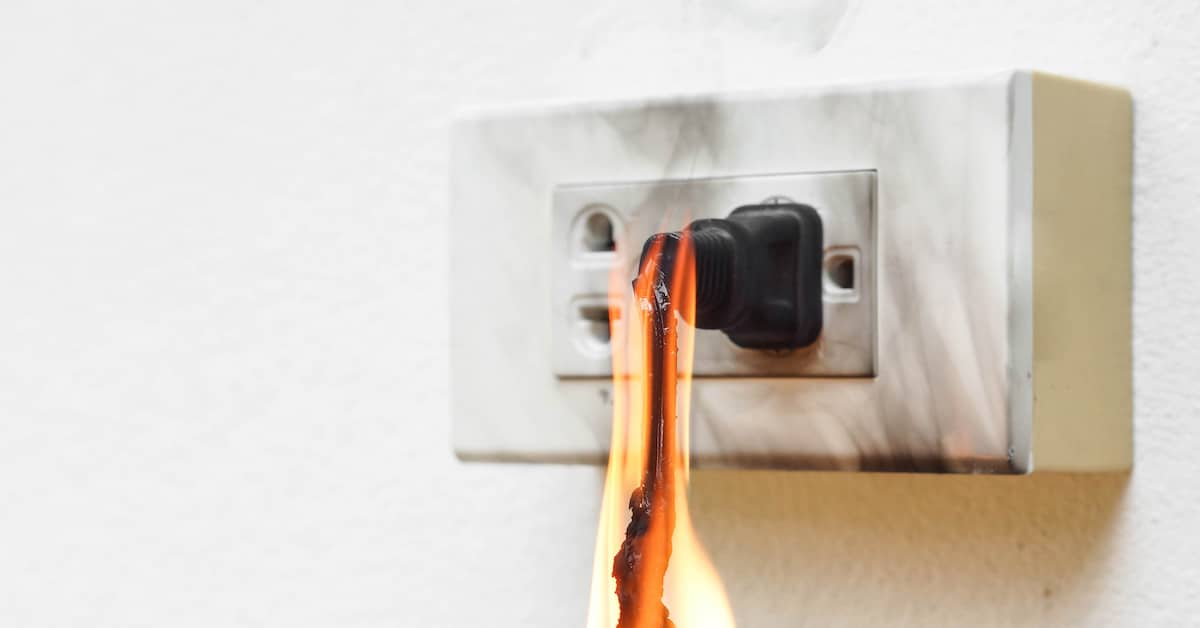Is a Landlord Responsible for an Electrical Fire?
October 3, 2023 | By Colombo Law
Electrical fires make up a significant portion of residential fires each year. These fires account for more than $1 billion in property damage annually, as well as thousands of injuries and hundreds of deaths. Because of how devastating these fires can be, the question of who is responsible is an important one.
Whether you can sue a landlord for an electrical fire depends on a number of different factors. Liability must be determined on a case-by-case basis and, in some situations, can be very difficult to establish.
That said, there are situations where landlords and building managers may be held liable for electrical fires, meaning anyone who suffers damages from those fires may be entitled to compensation. A premises liability lawyer at Colombo Law can help.
If you have been injured or a loved one was killed in an electrical fire, our attorneys can determine who is at fault and pursue legal action against the landlord and any other defendants. Call 304-599-4229 today for a FREE consultation.
What Causes Electrical Fires on Rental Properties?
There are many different causes of electrical fires on rental properties, including:
- Old, faulty wiring and outlets: The number-one cause of electrical fires is outdated, worn-out wiring, outlets, and appliances. As these pieces of equipment age and the wires fray, the chance of a spark that leads to a fire increases.
- Overloads: When too much power is being pulled from a breaker, it should trip a circuit that shuts down the power. However, with older breaker boxes, there is an increased chance of a malfunction leading to a fire. Overloads are especially common in older properties that have not been adequately updated to accommodate how much more power we use compared to when they were initially installed.
- Poor workmanship: Unfortunately, property owners and landlords sometimes try to cut corners when it comes to fixing and maintaining their properties. This can be an extremely dangerous practice because even small errors—such as improperly installing an outlet or putting the wrong light bulbs in light fixtures—can result in electrical fires.
- Rodents and pests: One of the less-obvious causes of electrical fires are rodents and pests (rats and cockroaches in particular) which can chew through or weaken the insulation around wiring, causing frays that lead to fires.
Ultimately, determining what caused a fire is the first step of any legal investigation. Once the cause is established, a knowledgeable attorney will be able to determine if you can sue your landlord for the electrical fire.
What Responsibilities Do Landlords Have for Fire Safety?
Landlords have a duty to ensure that the premises they lease to tenants are in a safe and habitable condition. This includes promptly repairing any known or obvious hazard, along with regular inspection to address any potential electrical problems that could arise.
They are also responsible for maintaining the property to keep all electrical wires and outlets up to code. In addition, landlords should perform regular pest control to reduce the risk of animals damaging electrical wires.
When Can I Sue a Landlord for an Electrical Fire?
You may be able to sue a landlord for an electrical fire if you can prove that their negligence resulted in the fire and subsequent damages. That said, proving that a landlord knew about the hazard or should have known about the hazard can be challenging. You will need evidence to back up your claim, whether that be witness testimony or a dated document clearly showing that the landlord was informed of the hazard.
Because the cause of fires can be difficult to determine, the landlord will likely argue that a tenant or other party was responsible for the fire. For example, they may claim that you overloaded an outlet which ultimately led to the fire. Getting to the root of the matter may require additional insight from expert witnesses, such as fire investigators and electricians.
What Damages Can I Recover?
As with any premises liability claim, the compensation you can recover is determined by the damages you sustain. In electrical fires, damages may include:
- Medical bills: Treating burns and other injuries caused by an electrical fire can be extremely costly, requiring immediate medical attention and, in some cases, skin grafts and other forms of reconstructive surgery.
- Property damage: If a fire breaks out, you should always leave your belongings behind to prioritize the safety of yourself and others in the building. However, this means that property damage often occurs as a result of the fire and smoke that comes into contact with your possessions.
- Pain and suffering: The injuries sustained in fires can have long-term consequences, especially when it comes to burns that lead to scarring and disfigurement. Sadly, this can have an extreme psychological and emotional impact on burn victims.
In some cases, you may also be entitled to punitive damages. Punitive damages are designed to punish defendants whose actions are determined to constitute “actual malice toward the plaintiff” or a “conscious, reckless and outrageous indifference to the health, safety and welfare of others” (see West Virginia Code § 55-7-29).
Find Out If You Can Sue a Landlord for an Electrical Fire
Liability for an electrical fire can be difficult to establish. If your rental home, apartment, or other property caught fire and you believe the negligence of the landlord may have been a factor, it is important to explore your legal rights as soon as possible.
The attorneys at Colombo Law are well-versed in premises liability law. We can fully investigate and gather evidence on your behalf and provide you with qualified guidance on whether you can sue your landlord for an electrical fire.
Our lawyers serve clients injured on dangerous premises in Morgantown and throughout West Virginia. Contact Colombo Law for FREE today.


